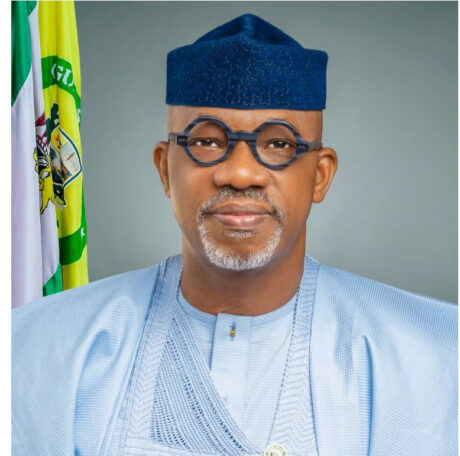1
For those of us who are incorrigible followers of the beautiful game of football, the maxim “it is not over until it is over” is a statement of fact that we have seen replayed time and again, so I need not bore you with examples.
It is also common among the Igbos of the Southeast to say, “Onu ku njo, ga eku ma,” which literally means that the mouth that spoke ill of someone will, one day, speak well of him.
These sayings resonate with the current chief executive of Ogun State, Prince Dapo Abiodun, who has emerged as one of the best-performing governors in the Southwest.
Abiodun assumed office on May 29, 2019, after defeating candidates from the PDP and ADP in a closely contested election. All eyes in the border towns of Ijoko, Akute, Agbara, Mowe, and Lambe were fixed on him. They believed that a ‘messiah’ had finally come in the form of Abiodun because, for years, their communities had suffered from a lack of government presence and had the worst network of roads connecting them to Lagos State, where the majority of them work or do business.
Initially, instead of addressing their long-standing cries and focusing his development agenda on areas that could boost the state’s internally generated revenue, Abiodun chose to concentrate his efforts on the Abeokuta and Ijebu-Ode regions. This decision elicited strong backlash from local residents, who expressed their dissatisfaction and some even abandoned their properties, relocating back to Lagos.
However, today, the narrative has changed. The communities have transformed with the rehabilitation of nearly all their roads, and those who once abandoned their properties are returning. Those who sold their land outright, believing their towns were forgotten by the government, are now regretting their decisions, saying, “Had I known, I would not have sold the house.”
In the Toyin border area between Ogun and Lagos states, Abiodun has been celebrated since the completion of a road connecting Giwa in Ogun State to Lagos State. This more than five-kilometre stretch, last repaired during the military regime, had deteriorated under successive civilian governments following the efforts of Aremo Segun Osoba, who originally improved the route from Toyin to Agbado, where a train station now stands.
One resident, who prefers to be called Sunday and runs an auto spare parts shop, shared, “The fact that he repaired this road isn’t even the issue; it’s the speed at which it was done that makes me believe Nigeria can work if our leaders want it to. Previously, I struggled with dust and low sales, but since the road was repaired, I can wear one shirt multiple times, saving money on laundry detergent. Sales have increased because my customers, who stopped coming due to the bad road, have all returned. What used to take me two hours to travel from Toyin to Giwa now takes me an average of five minutes. God bless Abiodun.”
Similarly, Iya Sikira, who runs an Amala joint at Giwa Junction, remarked, “Since the road’s repair, my customers have increased dramatically. I can hardly keep up with their demand, as they come from morning till night. Before, I would cook and not sell everything. If I had the money, I would have relocated to Iju Ishaga.”
Another area experiencing Abiodun’s transformative effect is the Epe/Ijebu Ode road, which had become impassable and caused transport fares between Epe and Ijebu-Ode to rise. Now, the people are singing new praises for Abiodun following his rehabilitation.
The Akute/Ajuwon road, once a war zone riddled with potholes caused by years of neglect, was similarly revitalised by Abiodun’s efforts. Today, this less-than-five-kilometre road is as smooth as a newborn’s head, connecting Ajuwon to Alagbole for those coming from Iju.
As for the Akute Denro Ishasi Ojodu road, it has been completed and opened for public use, with commuters, motorists, and pedestrians expressing their gratitude to Abiodun for his timely intervention.
The same sentiment is echoed by residents of Navy College Road in Ota, which has also undergone significant improvements.
Before Prince Dapo Abiodun’s tenure ends on May 29, 2027, the ongoing rehabilitation of the Lagos/ Ota/Sango Abeokuta Expressway, which has needed attention since the late President Muhammadu Buhari’s administration, is expected to be complete. The same goes for the ongoing work on the Alagbole/ Akute road.
When political leadership eventually transitions from Abiodun to his successor, he will leave the state without any abandoned projects. The residents of the border towns, who once felt neglected by successive governments, will forever remember that a man like Prince Dapo Abiodun governed the state from 2019 to 2027.








